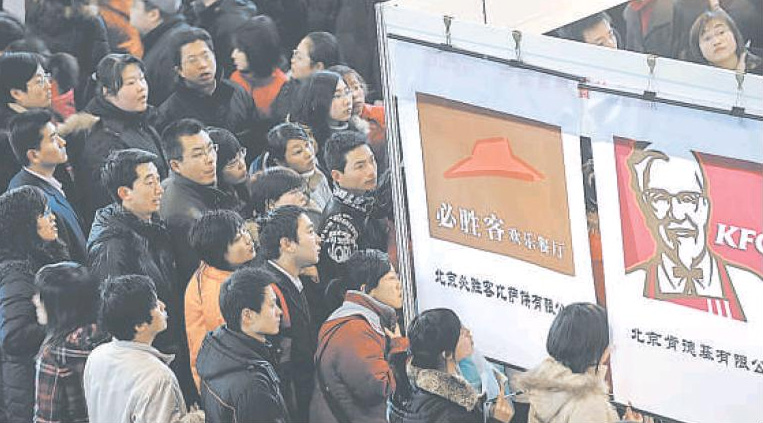EXPORTS: Domestic problems driving up cost of doing business
Province

Employment-seekers crowd a job fair in Beijing last week amid fears that China’s worst winter weather in 50 years will fuel inflation and investment problems in the Asian giant’s runaway economy.
SHANGHAI — As China’s factory floors feel the pressure from spiralling costs, there is growing nervousness in the rest of the world that the Asian giant’s next big export could be inflation.
Shoppers worldwide have become accustomed to the vast array of ultra-cheap Chinese goods on offer as China’s trade surplus last year reached $262.2 billion US, a more than 10-fold rise from 2003.
But now a confluence of factors, led by soaring domestic inflation that hit an 11-year high of 7.1 per cent in January, is ramping up the costs of doing business in China, with potential effects for the rest of the world.
As China’s currency has strengthened sharply against the U.S. dollar, the government has scrapped export-tax rebates, while more stringent labour laws and even the ice and snow storms in southern and central China have further driven up costs.
“China’s inflation is having a domino effect on worldwide inflation, especially in the United States,” Li Huiyong, an analyst from Shanghai-based SYWG Research and Consulting, said.
“In the past, [outside] inflation pressures in the U.S. mainly came from oil prices because the U.S. economy is highly dependent on crude oil. Cheap products from China and other developing countries helped to alleviate that pressure. Now Chinese goods are no longer as cheap it adds to the inflation pressure in the U.S.”
Nevertheless, while it is clear that doing business in China is getting more expensive, there is no consensus among economists about how much that will translate into higher price tags for Chinese-made products overseas.
Wang Qing, chief China economist at Morgan Stanley, stressed that Chinese competitiveness was not about to disappear and goods from Asia’s most populous nation would remain cheap for years.

